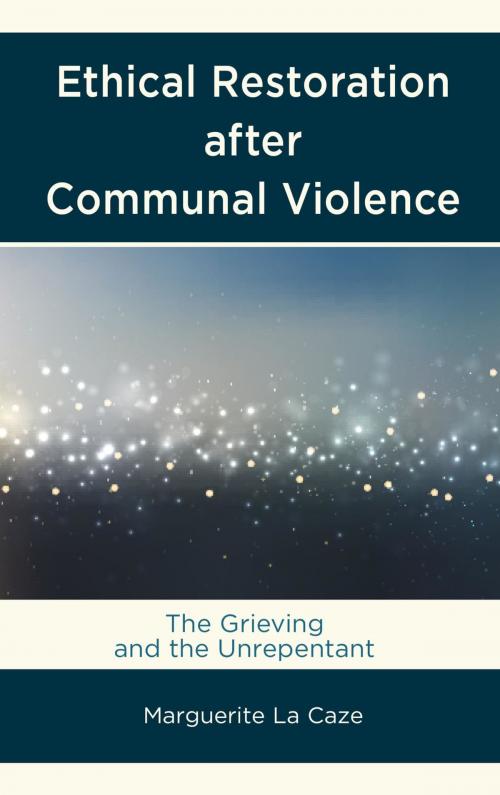Ethical Restoration after Communal Violence
The Grieving and the Unrepentant
Nonfiction, Religion & Spirituality, Philosophy, Good & Evil, Political, Ethics & Moral Philosophy| Author: | Marguerite La Caze | ISBN: | 9781498526708 |
| Publisher: | Lexington Books | Publication: | September 15, 2018 |
| Imprint: | Lexington Books | Language: | English |
| Author: | Marguerite La Caze |
| ISBN: | 9781498526708 |
| Publisher: | Lexington Books |
| Publication: | September 15, 2018 |
| Imprint: | Lexington Books |
| Language: | English |
Contemporary political ethics has to face the question of how to repair relations which have broken down after crimes, oppression, and political violence. The book employs the work of European and feminist philosophers, including Jacques Derrida, Albert Camus, Simone Beauvoir, Hannah Arendt, Karl Jaspers, Jean-Paul Sartre, Giorgio Agamben, Immanuel Kant, Jean Améry, Vladimir Jankélévitch, Margaret Urban Walker and Linda Radzik to engage with historical and recent cases: the post-liberation French purge, post-genocide Rwanda and post-colonial Australia and draws out the negative and positive conditions of ethical political responses in these contexts. It develops a philosophical account of ethical restoration through focusing on just punishment, guilt and shame, rebuilding political trust, forgiveness and reconciliation, remorse and atonement, and self-forgiveness.
Contemporary political ethics has to face the question of how to repair relations which have broken down after crimes, oppression, and political violence. The book employs the work of European and feminist philosophers, including Jacques Derrida, Albert Camus, Simone Beauvoir, Hannah Arendt, Karl Jaspers, Jean-Paul Sartre, Giorgio Agamben, Immanuel Kant, Jean Améry, Vladimir Jankélévitch, Margaret Urban Walker and Linda Radzik to engage with historical and recent cases: the post-liberation French purge, post-genocide Rwanda and post-colonial Australia and draws out the negative and positive conditions of ethical political responses in these contexts. It develops a philosophical account of ethical restoration through focusing on just punishment, guilt and shame, rebuilding political trust, forgiveness and reconciliation, remorse and atonement, and self-forgiveness.















